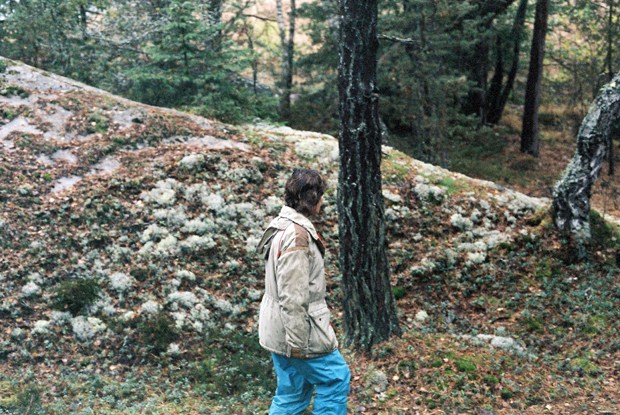The Anchorage (Anders Edstrom and C.W. Winters, 2009): Sweden/USA
Reviewed by Lava Farmer. Viewed at Grauman’s Egyptian Theater, Hollywood. As part of the 2009 AFI Film Festival.
 This slow paced story, The Anchorage, seems to be anything but a story, following a simple woman with a simple life. Instead we are presented with beautiful shots of the Stockholm Archipelago in Sweden. Rather than being introduced to the characters, you seem to be watching them as though from a strangers perspective. You are forced to watch their monotonous everyday activities in real time without any explanation. Most of the takes are extremely long making some scenes seems so drawn out and dull that it’s somewhat frustrating.
This slow paced story, The Anchorage, seems to be anything but a story, following a simple woman with a simple life. Instead we are presented with beautiful shots of the Stockholm Archipelago in Sweden. Rather than being introduced to the characters, you seem to be watching them as though from a strangers perspective. You are forced to watch their monotonous everyday activities in real time without any explanation. Most of the takes are extremely long making some scenes seems so drawn out and dull that it’s somewhat frustrating.
They distance the audience from the characters with sound by making ambient noise more important than conversation or dialogue. The audience is constantly bombarded with the sounds of nature. The whistling wind, the splashing waves of the sea, the sound of a fire crackling, are paralleled by much harsher sounds of man and technology. When we hear the roar of a chainsaw or her boats engine, it is abrasive and harsh compared to the soothing sounds of her island. The director, C.W. Winter, said that the story is meant to be maintained by sound and not picture. You are always just within earshot of what’s going on.
Although we follow Ulla, the lady of the island, through her day-to-day tasks, we aren’t really learning her story. At some point a hunter arrives on her island and you feel as though something might happen. You begin to feel fear for her. It’s as though by distancing the us from Ulla it makes us want to understand her more. You are always trying to figure out what she thinking and why. You make of her what you want.
The directors, Anders Edstrom and C.W. Winter, said that they weren’t trying to illustrate a story from a script, but to instead write a story using the camera. Edstrom, primarily a photographer, decided to choose the weakest shots from each take so that the viewer would actively watch the film rather than letting everything come to them. They give us long drawn out shots then show them in repetition to make you notice small changes. Even though only a short time passed I began to feel very connected with Ulla and her simple way of life. It made me feel so grateful for the things that make life easy that seem to be taken granted for. Perhaps we are supposed to walk away from the film with a new appreciation for life rather than a story. Not every film has to have a story, some just have a message.
About this entry
You’re currently reading “The Anchorage (Anders Edstrom and C.W. Winters, 2009): Sweden/USA,” an entry on Student Film Reviews
- Published:
- 11.04.09 / 11am
- Category:
- AFI Filmfest 2009, Films
1 Comment
Jump to comment form | comments rss [?] | trackback uri [?]